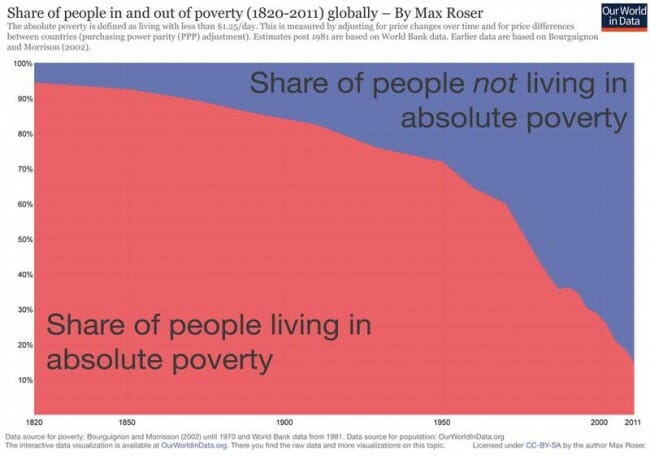My View on the Source of Wealth in the Modern World
About 15 years ago, I wrote something I wanted to repeat here just because I keep looking for it and a lot of my old Typepad blog era stuff is hard to find. The original post is gone but I quoted from it in 2005.
Since 1700, the GDP per capita in places like the US has risen, in real terms, over 40 fold. This is a real increase in total wealth, created by the human mind. And it was unleashed because the world began to change in some fundamental ways around 1700 that allowed the human mind to truly flourish. Among these changes, I will focus on two:
So today's wealth, and everything that goes with it (from shorter work hours to longer life spans) is the result of more people using their minds more freely.
At the time, perhaps to my shame, I had never even heard of Deirdre McCloskey nor her work that has been published in three volumes called the Bourgeois Era explaining what she calls the "great enrichening" (which I am slowly plowing through). My thinking when I wrote this seems reasonably consistent with her conclusions, though she has obviously been a lot more systematic in thinking about it. This exchange with Gregory Waymire is a short but quite readable window on her thinking. She writes in part:
You're adopting a conventional and somewhat silly view that the bourgeoisie were especially diligent, when it is not true as fact and is anyway not the character of the bourgeoisie that
mattered to the Great Enrichment (which by the way was a factor of 30 per capita in countries that fully adopted economic liberalism, not the factor of 10 you quote: look at the passage again, and read slower and longer). Weber sometimes got this right, sometimes wrong. But people tend to read him as saying that higher savings and more diligence, Ben Franklin style (and even Ben did not actually do it), is what made us rich.One trouble which such a conventional argument is an economic one that Solow-type models (and Smith- and Marx- and Weber- type models) that reduce growth to savings and labor effort are radically mistaken. What matters is human creativity released from ancient trammels....
What made us rich, I argue at no doubt tedious and unreadable length in the Bourgeois Era trilogy, is imagination, ingenuity, radical ideas released. They were released in turn by liberalism, Smith's "liberal plan of [social] equality, [economic] liberty, and legal [justice]."

